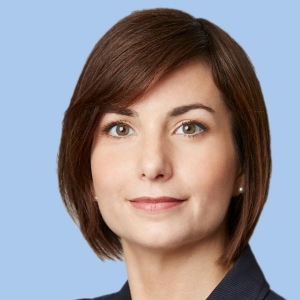Zoe Salzman is a Manhattan-based trial attorney who unabashedly loves to win. As a partner at Emery Celli Brinckerhoff Abady Ward & Maazel LLP, she has argued numerous high-profile cases that deal with social justice, civil rights or human rights. Her clients have included a man who was wrongfully imprisoned for nearly 20 years, the family of an African-American 12-year-old who was killed by police, and survivors of sexual violence.
“The majority of my practice now is in the #MeToo space,” she says. “There are court decisions — some of which my firm helped win — that have opened new avenues of justice. There is a greater social awareness of the extent of the problem. It’s incredible how much has changed in just a few short years.”
Formative experiences
“My grandparents were Holocaust survivors and believed all of us had a mission to fight injustice wherever we saw it. I remember going to anti-apartheid marches with my grandmother and accompanying my mother while she volunteered at a domestic-violence shelter. I think I was drawn towards the law because I liked the idea of using my work to fight for causes and issues that are important to me.”
At Concordia
“I attended the Liberal Arts College, where you do a lot of readings then meet in relatively small classes to debate and discuss them. That’s still what I do: I read a lot, then discuss what I’m reading with my judges, mediators or my adversaries.”
On law as a creative profession
“Above all, lawyers who litigate cases in court are storytellers. The best legal briefs are the ones that you don’t need a law school background to understand and find compelling. One of the more enjoyable parts of our work is being creative in the way we present an argument.”
A rewarding challenge
“Most lawyers have relatively stressful jobs. It goes with the territory. Representing people who have suffered an incredible injustice comes with a secondary layer of challenges. They’re coming to you with something traumatic, sensitive and personal. It’s a weighty responsibility. At the same time, that’s exactly why it’s so rewarding.”



